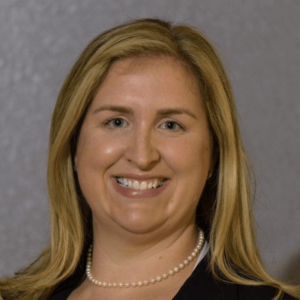Dr. Jill Ombrello is an experienced holistic dentist and business owner in Dallas, TX. She specializes in sleep-disordered breathing and habit correction in children, and she regularly travels to speak on these topics. Through lectures and hands-on seminars, Dr. Ombrello trains and certifies other dentists in the Healthy Start program, a system designed to address a wide range of sleep-disordered breathing symptoms. Her most recent engagement was in Ecuador, where he trained and certified nearly 2000 dentists.

Dr. Jill Ombrello grew up as the daughter of a highly respected community dentist, Dr. Rosellini. Dr. Rosellini started Jill on the Healthy Start program as a child. To this day, Dr. Ombrello strongly believes in the program’s ability to prevent future breathing problems and support overall health and development. She recommends the system and appliances to her patients and even uses them on her own children.
For her education, Dr. Ombrello received her Bachelor of Science degree from Saint Louis University. She earned her Doctor of Dental Surgery degree in 2008 from the University of Texas Health Science Center.
Dr. Jill Ombrello is passionate about serving others and providing top-tier care to patients of various backgrounds, and she has strongly advocated for public health dentistry since the beginning of her career. She volunteers services to survivors of domestic abuse at the Genesis Women’s Shelter. She has also provided dental care in underserved areas in Texas and rural villages of Alaska.
When she is not working, Dr. Jill Ombrello can often be found cheering on the sidelines of a soccer field for her three children. Some of her favorites activities are spending time with her family, traveling, and gardening. She is also a regular attendant of Christ the King Catholic Church, and she also serves on the Board of Alumnae at The Hockaday School.
For more information on Dr. Ombrello and the Healthy Start Program, follow her out on social media!
Dr. Jill Ombrello on How to Recognize Signs of Sleep-Disordered Breathing in Your Child
Sleep-disordered breathing is more prevalent than most of us realize, and yet parents are rarely informed about the risks and symptoms of these breathing difficulties. Here are some ways you can recognize if your child is suffering from sleep-disordered breathing.
Snoring
Perhaps the most obvious way to identify a child with sleep-disordered breathing (SDB) is frequent snoring. Children who snore loudly may also wake up gasping or snorting as they experience breathing blockages. SDB may also cause a child to breathe primarily through their mouth, causing their throat to become irritated and inflamed.
Other Symptoms of SDB
In addition to snoring, a child with SDB may also have dark circles under their eyes. They might experience nightmares. They will likely experience general fatigue. They may suffer insomnia or excessive daytime sleepiness. The sleep disruptions resulting from SDB can cause a multitude of other problems, including behavior issues, headaches, bedwetting, anxiety, depression, aggression, or even bad grades. Some children may also experience persistent allergies from breathing through their mouths at night.
Infants can also experience SDB. If you notice your baby snoring regularly, or snorting or gasping in their sleep, talk to your doctor or holistic dentist. Babies with SDB may also seem more restless at night as they struggle to breathe.
Risks of SBD
SDB comes with considerable risks. Children who suffer from SDB may not produce enough growth hormone, which can stunt their growth and development. SDB can also cause the body to have increased insulin resistance, contributing to weight gain and even obesity. Obstructive sleep apnea has also been associated with an increased risk of high blood pressure and other cardiovascular problems.
These symptoms are not exclusive to SDB, resulting in frequent misdiagnosis. Misdiagnosis can lead to children being prescribed medications with harmful side effects that do not address the root issue. Misdiagnoses can further exacerbate frustrated parents while doing nothing to the actual problem. Furthermore, if your child does suffer from other health issues unrelated to SDB, sleep problems can continue to make those problems worse.
If you suspect that your child is dealing with sleep-disorder breathing, don’t hesitate to talk to your healthcare provider. The sooner you address the problem, the sooner your child will be feeling better, breathing more comfortably, and sleeping more soundly.
